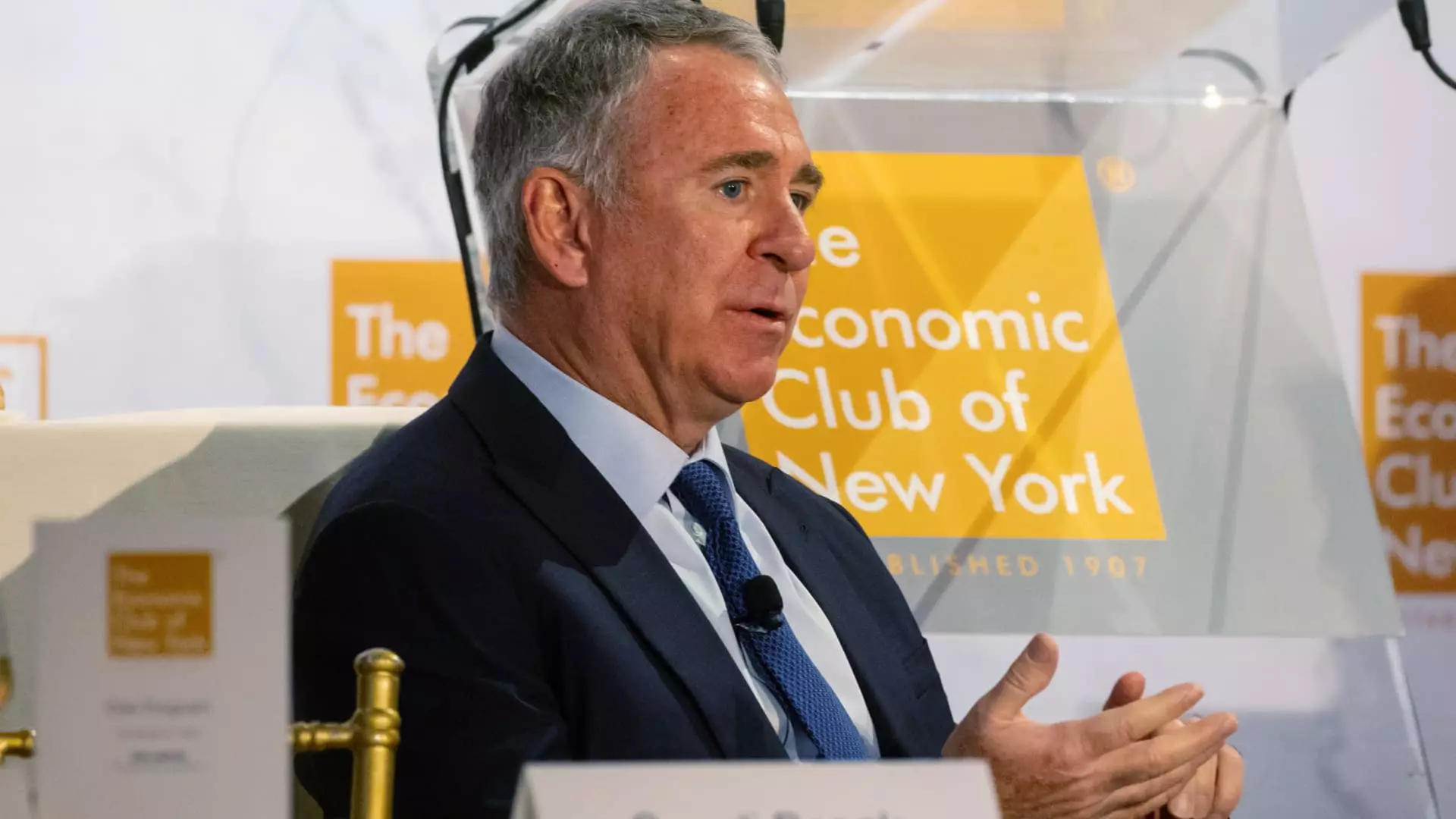As global economies attempt to recover from the disruptions caused by the COVID-19 pandemic, the discussion surrounding trade policies has resurfaced with renewed urgency. One of the prominent voices cautioning against aggressive tariff implementation is Ken Griffin, the CEO of Citadel. Speaking to the Economic Club of New York, Griffin highlighted the potential risks of President-elect Donald Trump’s promised tariffs, warning that they could lead the nation toward crony capitalism—a concerning scenario for the American economy.
Griffin pointed out that while some domestic companies might relish the immediate advantages of reduced foreign competition—akin to a “sugar rush”—this could foster complacency and inhibit innovation in the long run. He argues that businesses benefitting from protective tariffs may not feel the pressure to enhance productivity or stay competitive globally. Such complacency would not only affect the firms themselves but could ultimately harm the American consumer by limiting choices and inflating prices. A protected environment may breed inefficiency among local manufacturers who might otherwise strive to innovate and cater to consumer demands.
The core of Griffin’s argument rests upon a fundamental economic principle: competition fosters growth and innovation. When companies do not have to contend with foreign competitors, they might lose sight of enhancing their products and services, leading to stagnation. This complacency can weaken not just individual companies but the entire economy, as productivity and effectiveness decrease across sectors. Griffin expresses that the lure of immediate benefits must be carefully weighed against the detrimental long-term effects they could have on America’s competitive landscape.
Compounding these economic concerns is the anticipated influx of lobbyists and special interest groups seeking to leverage the protectionist climate created by tariffs. Griffin foresees a scenario where lawmakers, under the influence of these special interests, might be pressured to continue raising tariffs. This could protect inefficient businesses at the cost of consumer welfare, potentially leading to higher prices and reduced choices for everyday Americans. Such dynamics may set off a chain reaction of industry protectionism that stifles competition and drives up inflation, counteracting any positive effects that could arise from a strong domestic market.
Interestingly, amidst these broader discussions of tariffs and their implications, Griffin also addressed the state of Citadel itself. He indicated that there are no immediate plans for the firm to go public, stressing a keen focus on leveraging growth while maintaining the benefits of being a private entity. Griffin emphasized that investing in the future of the business takes precedence over the potential short-term gains of an IPO, reflecting a long-term vision that aligns well with his concerns about crony capitalism.
Ultimately, the warning signs presented by Griffin serve as a vital reminder of the delicate balance between protectionism and competition. As the nation grapples with its economic policies, the choice between short-term security and long-term sustainability remains pivotal for the future of American industry and consumers alike.

